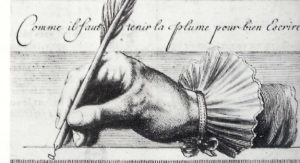
There is nothing quite so wonderful for an author as a serious reader. Here’s part of an email:
Dear Sandra,
I just reread Mistress of the Sun a couple of months ago, and I came away surprised at how much dialogue there is, all of it excellent, and wondering why I missed this the first time. (I was probably just wrapped up in the story.) It makes me reflect upon different writers’ approaches to narrative.
Edith Wharton always filled her books with so much description — description of rooms, curtains, spreads of food, not to mention description of the characters’ emotions. I tend to think of Mistress of the Sun as being more like Hemingway: Not everything is made explicit by the author’s voice, and we’re invited to interpret meaning by closely observing what the characters are saying — or not saying — to one another. (This is ironic, of course, considering that your aristocratic subject matter is closer to Wharton’s.)
Maybe I’m reading a bit too much into this, and maybe you’re approaching the Next Novel in a different fashion. But that’s what I’ve come away with.
Description is all-important, but very hard work, especially for historical fiction. My editors constantly push for more detail, and I’m glad they do.
I do tend toward what I like to think of as Gothic Minimalism. (I fancied I’d founded a School with those words, but no.) I try to be spare, and I like to see a lot of white on the page: this is where dialogue comes in. Plus, it’s wonderful when characters start talking.
I often wish I could be more witty—I’m the person in the group who just doesn’t get the joke—but basically I just comb a manuscript over and over again, cutting out dead wood with each pass, trying to be true. I look for what Butler so aptly calls thrum—that lively movement from one sentence to the next, one scene to the next.
“So no, Jordan, I don’t believe my approach will change,” she said. “At least with respect to dialogue,” she added, thinking of the three people reading the third draft of The Next Novel, and wondering what they were thinking—knowing that there would have to be more descriptive detail. Perhaps I should reread Edith Wharton, she thought.

